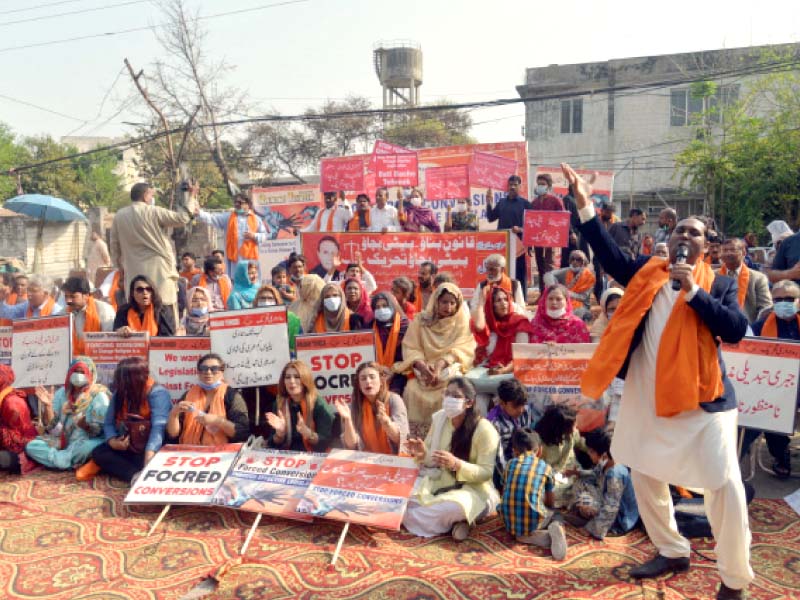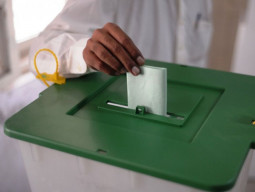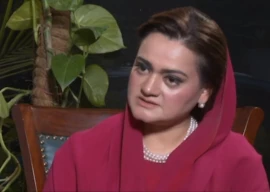
Thousands of women across the country defied the coronavirus pandemic and took part in annual marches and rallies to mark International Women’s Day, calling for social justice, equal rights and end to what they called “pandemic of patriarchy” in a deeply conservative society.
International Women’s Day is observed globally on March 8. This year, however, it remained a muted affair due to the pandemic-induced restrictions on large gatherings. In Pakistan, women came out in large numbers in major urban centres to take part in ‘Aurat Azadi March’ which has become a synonym for women’s struggle for their rights in the country.
Before Aurat March, International Women’s Day used to be a low-key event – mostly celebrated by NGOs away from media spotlight. But it has now become a nationwide rallying call for political, social, economic and legal rights for women with more and more women turning out every year to participate in Aurat March despite opposition from conservative groups.
On Monday, rights groups organised several events to highlight women’s role in the development of the society and the issues they face every day. In the federal capital, women and men marched from the National Press Club to D-Chowk in which speakers expressed their determination to continue their struggle for women’s rights. They also staged a sit-in in front of the Parliament House.
On the occasion, women presented poems and staged tableaux. The issues highlighted at the event included problems being faced by the women at societal level in the current situation, including exploitation in the name of honour, enslavement, oppression and others.
Carrying placards in support of their demands, the women demanded an end to sexual violence against women, equal rights, legitimate right to inheritance and allocation of women’s share in national resources. Strict security arrangements were in place and women police and commandos were deployed along with male police personnel for the security of the march. All roads leading to the area were blocked.
The Pakistan Workers Federation also organised similar events across the country in collaboration with the labour ministry and the International Labor Organisation (ILO). These events highlighted that women constitute 49% of the population, yet they are not given equal opportunities in employment.
Meanwhile, addressing a ceremony at the Aiwan-e-Sadr, President Dr Arif Alvi said empowerment of women in Pakistan was linked to their economic independence and awareness about rights particularly related to inheritance, education and healthcare.
The president acknowledged the services rendered by the country’s women during the Covid-19 pandemic, particularly doctors and paramedics. However, he expressed concern that a large number of professional women doctors left the profession after marriage compared with their 70% ratio of enrolment in medical colleges.
Human Rights Minister Shireen Mazari, Defence Production Minister Zubaida Jalal, EU Ambassador to Pakistan Androulla Kaminara, United Nations Women Country Head Sharmeela Rasool and others also addressed the event, organised by the human rights ministry in collaboration with the UN Women, the European Union and Haqooq-e-Pakistan.
Sindh
The first-ever ‘Aurat March’ was held on Women’s Day in 2018 in Karachi, that was later extended to other cities, including Lahore, Faisalabad, Larkana, Multan and Hyderabad. Keeping up with the tradition, these cities and several others held rallies dedicated to women’s issues.
Squinting as the sun blazed over the Frere Hall gardens in Karachi, more than a thousand women and activists gathered in the Aurat March on the International Women’s Day. This year, the organisers arranged a walk and a sit-in at Frere Hall, presenting a 15-point agenda for the government.
Punjab
The Aurat marches were organised in several cities of Punjab, in which men also present n large number. Strict security arrangements were made for the marches this year because of a clash last year. Besides, the police, a large number of volunteers were also deployed for the security purpose.
In Lahore, the Aurat March started in from the Lahore Press Club, and after passing through Egerton Road it ended near the Punjab Assembly where participants presented various tableaux and delivered speeches.
Balochistan
Women belonging to all walks of life and representatives of civil society, rights organisations and government servants joined the ‘Aurat March’ in Quetta. Voices for upholding the rights of women echoed throughout the rally through slogans and placards.
The rally began from Quetta Metropolitan Corporation and ended at Quetta Press Club where the participants addressed the media. Many people attended the rally to show support for the suppressed women of society.
Khyber-Pakhtunkhwa
The parliamentary Caucus in the Khyber-Pakhtunkhwa Assembly and the provincial Commission on the Status of Women (CSW) organised an even in Swabi in the collaboration with a Canadian organisation.
CSW Chairperson Dr Riffat Sardar, Member of Provincial Assembly (MPA) Ayesha Naeem and others, while addressing the event, said that protection of women’s rights was fully guaranteed in the constitution of Pakistan.
The speakers said that the role of women in the politics of the country is not hidden from anyone and women are also actively participating in the proceedings of the Senate, National and provincial assemblies and contributing to the legislation for the benefit of the country and the nation.
International Women’s Day is observed on March 8 every year, as a global day to celebrate their social, economic, cultural, and political achievements. This year’s theme was “Women in leadership: Achieving an equal future in a Covid-19 world”.
In Karachi, the focus was on patriarchal violence while in Lahore, emphasis had been laid on addressing the concerns of the healthcare workers and women’s health in general. Similarly, women in Islamabad are also highlighting the crisis of care.
The collective demands from the Aurat marches include “end to gender-based violence by patriarchal forces as well as state-backed violence targeting activists, religious groups and communities and effective and transparent investigation of gender-based crimes”.
The participants also demanded criminalisation of virginity tests for victims of rape, setting up of gender-based cells to report violence in police stations, and bringing an end to sexual harassment.
The Lahore March stressed the need for providing equal healthcare opportunities to women, and aiding those suffering from various diseases, such as HIV AIDS.

















COMMENTS
Comments are moderated and generally will be posted if they are on-topic and not abusive.
For more information, please see our Comments FAQ